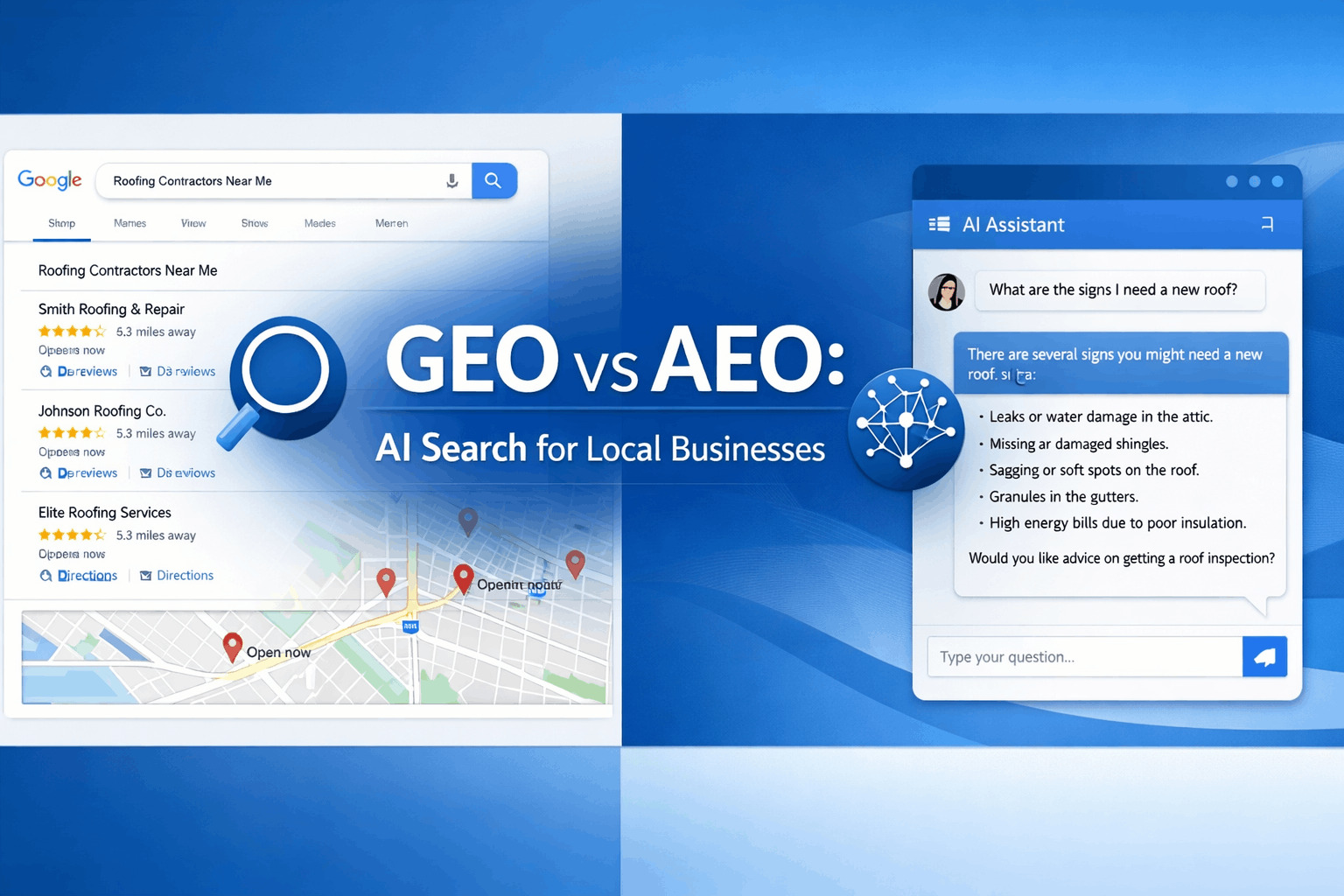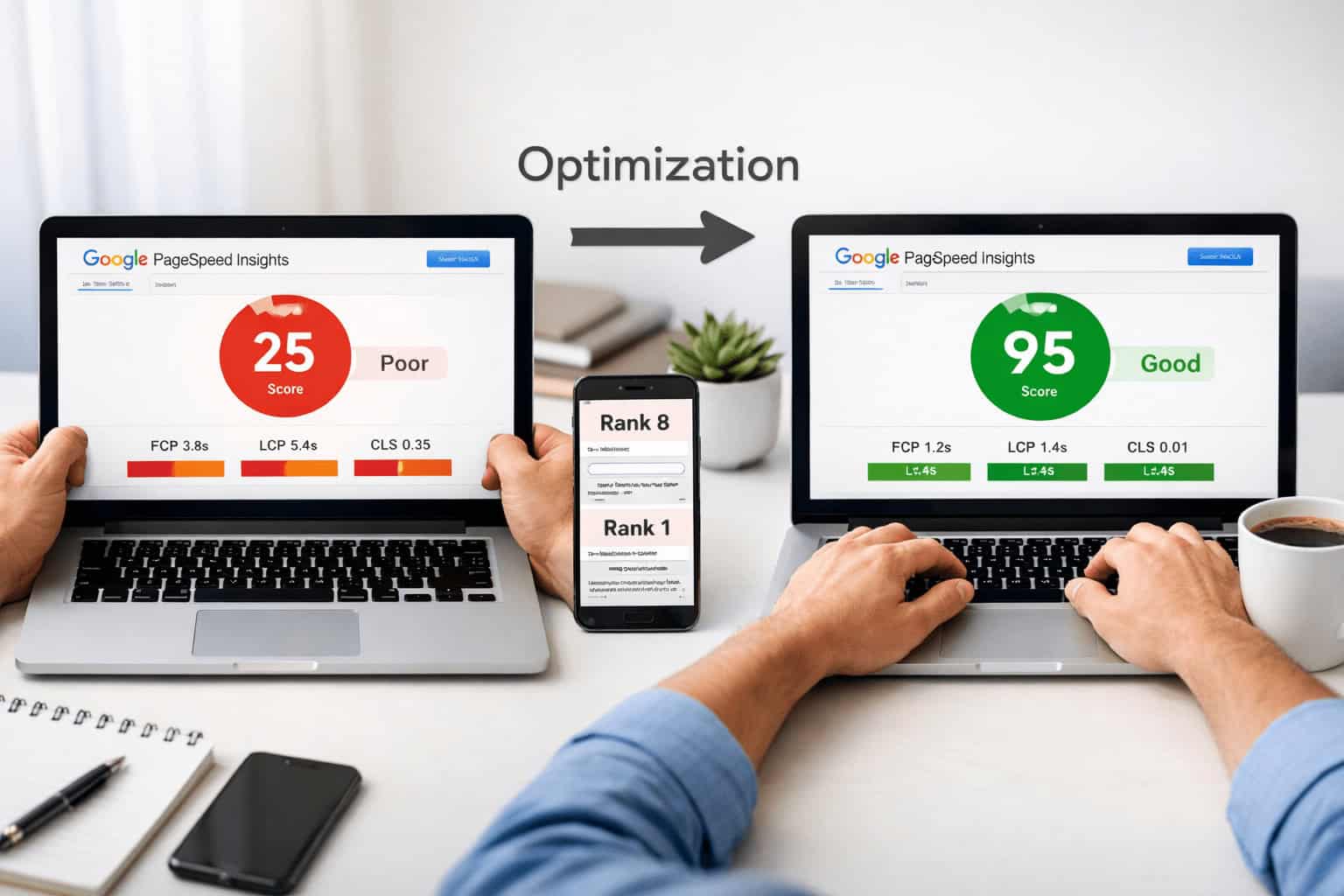When you’re learning about digital marketing you can often feel like a waterfall of acronyms is being thrown your way.
If you’re just getting started then one of the first things that will jump out is SEO vs SEM.
They both involve search engines, isn’t that enough?
Not quite. Read on and we’ll explain the difference between the two in order to help you understand how to utilize these techniques for your business.
Defining The Terms
One key to understanding which of these should be your primary focus is understanding both terms.
SEO stands for Search Engine Optimization.
When you make a search on Google the algorithm determines what websites will show up at the top of the list.
The majority of people click on the first few links and anything past the first page gets what amounts to scraps.
It’s a complex and ongoing process, and as Google’s algorithm has gotten better it’s focused more and more on improving the user experience.
SEM stands for Search Engine Marketing.
These are the ads that pop up at the top of the page when you make a search, with some making it into the tail as well.
These short ads can bring you right to the front page of Google but many internet savvy users have learned to simply ignore them.
They’re definitely not worthless, but paid marketing is a much more complex game than many people make it out to be.
At its most basic level, the difference between SEO vs SEM is a long-term strategy vs.a short-term approach.
SEM can be very effective in getting immediate traffic and sales, but as a pay-to-play system, your ranking only lasts as long as the money does and does not improve your SEO rankings. Whereas effective SEO tactics can potentially see results long after the initial investments of time, effort and money are long over.
SEO vs SEM: Which is Better?
For the most part, their uses are going to differ depending on your objectives and what industry you’re involved in.
What are your objectives?
Even if you decide that you wisely need to invest in the long game with SEO, there are plenty of good reasons to use SEM as well.
For example:
A/B Test a New Website:
If you’re a new business or just built a new website, using paid traffic with an SEM campaign is a great way to drive traffic to your website. Use it to test what works and what doesn’t with the new design.
Promote a sale:
If you’re having an event or a special time-constrained sale, you can get the immediate exposure you need using a PPC (pay-per-click) campaign.
Retarget Your Ads
If you choose to use Google Ads for your SEM strategy, you get the option of promoting your business outside of Google Search, by showing ads retargeted on relevant websites in the Google Display Network (GDN).
These ads can be displayed as text (like in Google search), as banners, on apps, and even in Gmail!
To quote Google – “Google Ads display ads appear on over two million websites and in over 650,000 apps, so your ad can show up wherever your audience is.” “You’re able to select specific sites from the network, or choose the types of people you’d like to reach, and let Google Ads create a list for you.”
Get Valuable Keyword Research
One of the most powerful keyword research tools available is the Google Keyword Planner. However, you can only access it using Google AdWords.
Even just putting a few bucks to work in a Google Adwords campaign makes the access to the tool worth it for all of your keyword research needs.
In what Industry do you work?
Products and services which are research-intensive almost always perform better with their primary backing being SEO.
People don’t trust paid ads when it comes time to research a service after all.
For business-to-business sales and expensive purchases, SEO almost always performs better in the long run. That’s not to say you should ignore SEM but your primary push shouldn’t be behind it.
SEO also tends to perform better for local sales, especially if you’ve spent the time to build your Google Business listing and put in place the fundamentals.
Where SEM really pushes through is in direct business-to-consumer sales, especially for impulsive purchases. Things like t-shirts or other cheap items that are prone to be bought on a whim do remarkably well here.
While you shouldn’t ignore either Here is a general rule.
If something requires research to find the best then you should focus on SEO.
If you just need to get things in front of the consumer, then a heavier focus on SEM will benefit you in the end.
Putting it Together
It’s hard to get ahead in online sales without making sure that you’re using a wide range of different techniques to get traffic.
The difference between the two is pretty big but they both should be a vital part of your online marketing strategy.
So maybe it shouldn’t be SEO vs SEM but SEO and SEM!
Of course, not all of us have the time to build an online presence and run our business.
If you’re looking to make sure you have what’s needed without having to hire another employee, then please contact us.
We will be happy to discuss and devise a strategy that fits your business and budget best.



